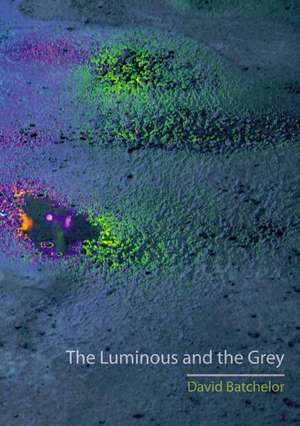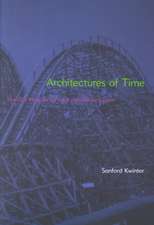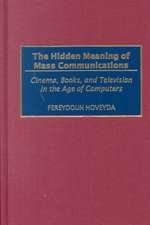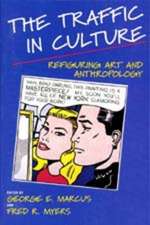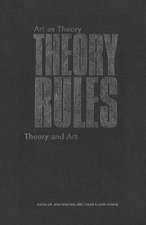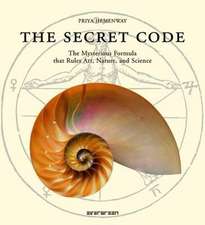The Luminous and the Grey
Autor David Batcheloren Limba Engleză Paperback – 18 feb 2014
Color surrounds us: the lush green hues of trees and grasses, the variant blues of water and the sky, the bright pops of yellow and red from flowers. But at the same time, color lies at the limits of language and understanding. In this absorbing sequel to Chromophobia—which addresses the extremes of love and loathing provoked by color since antiquity—David Batchelor charts color’s more ambiguous terrain.
The Luminous and the Grey explores the places where color comes into being and where it fades away, probing when it begins and when it ends both in the imagination and in the material world. Batchelor draws on neuroscience, philosophy, novels, films, and artists’ writings—as well as his own experience as an artist working with color—to understand how we see and use colors. He considers the role of color in creation myths, industrial chemistry, and optics, and examines the particular forms of luminosity that saturate the modern city. Following this inquiry into the hues that we face every day, he turns to one that is both color and noncolor: grey itself, which he reveals is as much a mood, feeling, and existential condition as a shade that we experience with our eyes.
Deftly argued, always thought-provoking, and ever entertaining, The Luminous and the Grey is a beautiful study of how we see and feel our multicolored world.
The Luminous and the Grey explores the places where color comes into being and where it fades away, probing when it begins and when it ends both in the imagination and in the material world. Batchelor draws on neuroscience, philosophy, novels, films, and artists’ writings—as well as his own experience as an artist working with color—to understand how we see and use colors. He considers the role of color in creation myths, industrial chemistry, and optics, and examines the particular forms of luminosity that saturate the modern city. Following this inquiry into the hues that we face every day, he turns to one that is both color and noncolor: grey itself, which he reveals is as much a mood, feeling, and existential condition as a shade that we experience with our eyes.
Deftly argued, always thought-provoking, and ever entertaining, The Luminous and the Grey is a beautiful study of how we see and feel our multicolored world.
Preț: 92.81 lei
Nou
Puncte Express: 139
Preț estimativ în valută:
17.76€ • 18.35$ • 14.77£
17.76€ • 18.35$ • 14.77£
Carte disponibilă
Livrare economică 26 februarie-05 martie
Livrare express 12-18 februarie pentru 21.56 lei
Preluare comenzi: 021 569.72.76
Specificații
ISBN-13: 9781780232805
ISBN-10: 1780232802
Pagini: 112
Ilustrații: 5 color plates
Dimensiuni: 147 x 210 x 10 mm
Greutate: 0.25 kg
Editura: REAKTION BOOKS
Colecția Reaktion Books
ISBN-10: 1780232802
Pagini: 112
Ilustrații: 5 color plates
Dimensiuni: 147 x 210 x 10 mm
Greutate: 0.25 kg
Editura: REAKTION BOOKS
Colecția Reaktion Books
Notă biografică
David Batchelor is an artist and writer based in London. He is the author of three books, including Chromophobia, also published by Reaktion Books.
Cuprins
Preface
1. The Beginning and the End of Colour
2. The Luminous and the Grey
3. The Grey and the Luminous
References
Bibliography
Acknowledgements
List of Illustrations
1. The Beginning and the End of Colour
2. The Luminous and the Grey
3. The Grey and the Luminous
References
Bibliography
Acknowledgements
List of Illustrations
Recenzii
“All theory is grey, Mephistopheles pronounces in Goethe’s Faust. But greyness is the last thing to hold against David Batchelor’s colourful essay, The Luminous and the Grey. In three short chapters, the London-based artist-author offers to vindicate ‘a colour without a colour’ that does so much of the unpaid housework in what we see and what artists make . . . Batchelor ranges wide, touching art, film, optics, and philosophy. His main point is that, contrary to reputation, grey can be bright, engaging, and luminous.’
“Although a measured and carefully researched book, it also takes the reader by surprise, particularly in the run up to the final section on grey, where at first we have a rerun of the many prejudices to be found against this colour, but then suddenly Batchelor turns this around and allows all the bad feeling to unravel. He moves elegantly to a subtle and thought-provoking reflection that draws upon a wide range of sources, including his personal reflections. . . . Batchelor literally delves into ideas about grey and goes further and deeper than I have come across . . . Great read.”
